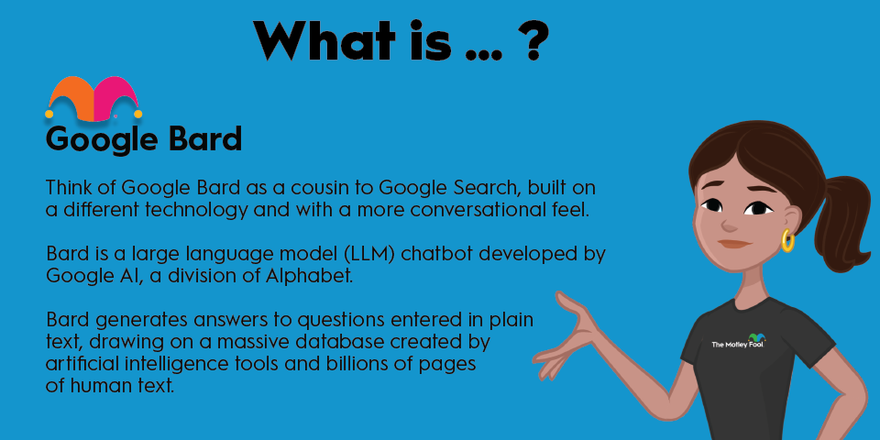ChatGPT vs. Google Bard vs. Microsoft Copilot. New Delhi. In recent years, artificial intelligence (AI) has made significant advancements in natural language processing and generation. Today, we have powerful language models such as ChatGPT, Google Bard, and Microsoft Copilot that can generate human-like text, assist in writing, and even compose entire pieces of content. In this article, we will compare these three AI models and determine which one emerges as the champion in the realm of language AI.
The realm of language models is abuzz with innovation, and three leading contenders stand out: ChatGPT, Google Bard, and Microsoft Copilot. Each boasts unique strengths and caters to diverse needs, leaving users wondering – who reigns supreme in the AI writing revolution? Buckle up, language enthusiasts, as we delve into their capabilities, limitations, and ideal use cases to help you crown the champion for your specific needs!
ChatGPT vs. Google Bard vs. Microsoft Copilot
1. ChatGPT: Developed by OpenAI, ChatGPT is a large language model known for its conversational abilities and versatility in generating text across a wide range of topics. It has been widely used for tasks such as content creation, customer support, and chatbot development.
2. Google Bard: Google Bard is a poetic language model developed by Google’s Research team. It focuses on generating creative and expressive poetry, leveraging AI techniques to craft evocative literary works. Google Bard is designed to inspire and assist poets in their creative endeavors.
3. Microsoft Copilot: Microsoft Copilot, developed in collaboration with OpenAI, is an AI-powered code completion tool integrated into developer environments such as Visual Studio Code. It assists developers by providing suggestions, writing code snippets, and improving productivity during software development tasks.
When comparing AI language models like ChatGPT, Google Bard, and Microsoft Copilot, each brings unique strengths to the table. ChatGPT, renowned for its versatility and natural conversational abilities, excels in generating coherent and contextually relevant text across various domains. On the other hand, Google Bard emphasizes creativity and poetic expression, offering users a platform for crafting evocative literary works. Microsoft Copilot stands out for its integration within developer environments, providing code suggestions and streamlining software development workflows. While each model has its niche, their collective advancement signals an exciting era in AI-driven language processing.
ChatGPT: The Conversational AI
Developed by OpenAI, ChatGPT is a language model that excels in generating conversational text. It has been trained on a vast amount of data from the internet, allowing it to understand and respond to a wide range of topics. ChatGPT can hold engaging conversations, answer questions, and provide suggestions.

One of the notable features of ChatGPT is its ability to adapt to different conversational styles. It can mimic the language and tone of a specific persona, making the conversation more personalized. However, it is important to note that ChatGPT may sometimes produce incorrect or nonsensical responses, as it generates text based on patterns it has learned from the training data.
ChatGPT: The OG Storyteller
Pioneering the large language model scene, ChatGPT excels in:
- Creative Text Formats: Craft poems, scripts, musical pieces, emails, and more with its diverse output capabilities.
- Engaging Narratives: Generate captivating stories and hold intriguing conversations, fueled by its vast text and code training data.
- Accessibility: Available through various paid plans and free access options, offering flexibility for individual users and businesses.
However, ChatGPT can sometimes struggle with factual accuracy and may exhibit biases present in its training data. Additionally, its free tier limitations and potential lack of explainability for generated text might be drawbacks for specific user requirements.
Google Bard: The Poetic AI
Google Bard is an AI model developed by Google, specializing in generating creative and poetic text. It has been trained on a diverse range of literary works, enabling it to compose beautiful poetry and prose. Google Bard can generate rhymes, metaphors, and vivid descriptions, making it a valuable tool for poets, writers, and artists.

One of the strengths of Google Bard is its ability to understand the context and emotions behind a piece of text. It can capture the essence of a story and create evocative language that resonates with the reader. However, like other language models, Google Bard may sometimes produce text that lacks coherence or fails to convey the intended meaning.
Google Bard: The Knowledgeable Sage
Backed by Google’s AI expertise, Bard shines in:
- Factual Accuracy: Leverages Google Search knowledge for reliable and up-to-date information, minimizing factual errors.
- Reasoning and Problem-Solving: Demonstrates strong capabilities in tasks like answering open ended, challenging, or strange questions, and excels in tasks requiring reasoning and analysis.
- Code Proficiency: Showcases impressive skills in various programming languages, making it valuable for developers and technical writers.
While Bard excels in factual accuracy and technical tasks, its creative text generation capabilities might not yet match the diversity and fluency offered by ChatGPT. Additionally, its current limited access through waitlist might restrict immediate widespread use.
Microsoft Copilot: The Coding Assistant
Microsoft Copilot is an AI model designed specifically to assist developers in writing code. It has been trained on a vast code repository, allowing it to understand programming languages, suggest code snippets, and even complete entire functions. Microsoft Copilot can significantly speed up the coding process and help developers overcome coding challenges.
One of the notable features of Microsoft Copilot is its ability to provide explanations and documentation for code snippets. It can explain the purpose of a particular line of code or suggest alternative implementations. However, it is important for developers to review and validate the suggestions provided by Microsoft Copilot, as it may sometimes generate code that is inefficient or insecure.
Microsoft Copilot: The Collaborative Ally
Microsoft’s offering, Copilot, thrives in:
- Real-time In-Editor Assistance: Suggests code completions, translates languages, and offers writing prompts directly within your workflow, boosting productivity.
- Integration with Microsoft Ecosystem: Seamlessly integrates with Microsoft products like Visual Studio and Word, enhancing the user experience within familiar tools.
- Focus on Developer Productivity: Tailored towards programmers and writers, offering targeted assistance within their specific domains.
Copilot might not offer the same level of creative text generation capabilities as its competitors and its focus on specific domains might limit its appeal for broader user needs. Additionally, its current integration primarily with Microsoft products restricts its usability for those outside the Microsoft ecosystem.
Remember, the ideal language AI empowers your creativity, productivity, and knowledge exploration. With Infotyke’s assistance, you can choose the champion that propels you towards your linguistic goals!
The Language AI Champion: ChatGPT vs. Google Bard vs. Microsoft Copilot
While ChatGPT, Google Bard, and Microsoft Copilot each excel in their respective domains, it is challenging to determine an overall language AI champion. The effectiveness of these models depends on the specific use case and the user’s requirements.
If you are looking for a conversational AI that can engage in meaningful discussions, provide suggestions, and answer questions, ChatGPT is an excellent choice.
For poets, writers, and artists seeking an AI model that can generate creative and poetic text, Google Bard offers a unique set of capabilities.
Developers who need assistance in writing code, understanding programming languages, and overcoming coding challenges will find Microsoft Copilot to be a valuable tool.
FAQs: ChatGPT vs. Google Bard vs. Microsoft Copilot
General:
- What is a language AI and how can it benefit me? Language AIs, also known as large language models, process and generate text in various formats, assisting with writing, coding, translation, and more.
- What are the key differences between ChatGPT, Bard, and Copilot? ChatGPT excels in creative writing, Bard shines in factual accuracy and reasoning, while Copilot offers in-editor assistance within the Microsoft ecosystem.
- Is any language AI completely free to use? ChatGPT offers free and paid plans, Bard is currently in limited access, and Copilot requires a Microsoft 365 subscription.
Features and Functionality:
- What types of creative text formats can ChatGPT generate? Poems, scripts, musical pieces, emails, and more.
- Can Google Bard answer open-ended and challenging questions? Yes, it excels in tasks requiring reasoning and analysis.
- Does Microsoft Copilot work with other programming languages besides Python? Yes, it supports various languages like JavaScript, C++, and Java.
Accuracy and Reliability: ChatGPT vs. Google Bard vs. Microsoft Copilot
- How does Bard ensure factual accuracy in its responses? Leverages Google Search knowledge and undergoes rigorous training on factual datasets.
- Can I trust ChatGPT’s information for research purposes? Use caution and verify information, as it might contain biases or factual errors.
- Does Copilot’s code generation guarantee error-free results? No, it’s crucial to review and test generated code before implementation.
Use Cases and Integration: ChatGPT vs. Google Bard vs. Microsoft Copilot
- Who can benefit most from using ChatGPT? Writers, content creators, and individuals seeking diverse text formats.
- Is Google Bard suitable for technical writing and documentation? Yes, its code proficiency and factual accuracy make it ideal for such tasks.
- Does Copilot integrate with other platforms besides Microsoft products? Limited integrations exist, but its core focus lies within the Microsoft ecosystem.
Choosing the Right AI: ChatGPT vs. Google Bard vs. Microsoft Copilot
- What factors should I consider when choosing a language AI? Needs, budget, desired features, accuracy requirements, and preferred integration options.
- Can I try out each language AI before committing? ChatGPT offers free access, Bard has a waitlist, and Copilot requires a Microsoft 365 subscription (trial available).
- What if my needs change in the future? Choose an AI with flexible access options and consider platforms offering multiple language models to adapt to evolving needs.
Infotyke’s Expertise: ChatGPT vs. Google Bard vs. Microsoft Copilot
- How can Infotyke help me choose the right language AI? We offer consultations and needs assessments to identify the best fit for your specific goals.
- Does Infotyke provide training and support for using these language AIs? Yes, we offer resources and guidance to help you leverage the chosen AI effectively.
- Can Infotyke help integrate the chosen AI into my workflow? We offer assistance with seamless integration and optimization of your chosen language AI solution.
So, Who Wins the Crown? ChatGPT vs. Google Bard vs. Microsoft Copilot
Declaring a single victor is challenging, as the “best” language AI depends on your specific needs and priorities. Here’s a quick breakdown:
- For creative writing and diverse text formats: ChatGPT remains a strong contender.
- For factual accuracy, reasoning, and technical tasks: Google Bard holds promise.
- For in-editor assistance within the Microsoft ecosystem: Copilot reigns supreme.
Infotyke: Language AI Landscape: ChatGPT vs. Google Bard vs. Microsoft Copilot
Choosing the right language AI can be overwhelming. Infotyke offers expert guidance and consultations to help you identify the AI that best fits your unique needs and goals. We can assist with:
- Needs assessment: Analyzing your specific writing, coding, or creative requirements to find the perfect match.
- Platform exploration: Providing in-depth overviews and comparisons of different language AI options.
- Integration and training: Supporting you in seamlessly integrating the chosen AI into your workflow and maximizing its potential.
Conclusion: ChatGPT vs. Google Bard vs. Microsoft Copilot
As AI continues to advance, we can expect further improvements and new language models that push the boundaries of what is possible. ChatGPT, Google Bard, and Microsoft Copilot are just a few examples of the incredible progress made in the field of language AI. Whether you need a conversational AI, a poetic AI, or a coding assistant, these models can provide valuable support and enhance your productivity. Choose the one that aligns with your specific needs and unlock the power of AI in language generation.
In conclusion, the comparison between ChatGPT, Google Bard, and Microsoft Copilot highlights the diverse capabilities of AI language models in catering to different needs. Whether it’s natural language generation, creative writing, or code assistance, each model showcases advancements in AI technology that continue to shape and redefine human-machine interaction. As these models evolve and innovate, they hold the potential to revolutionize various fields and contribute to the advancement of AI-driven solutions across industries.






